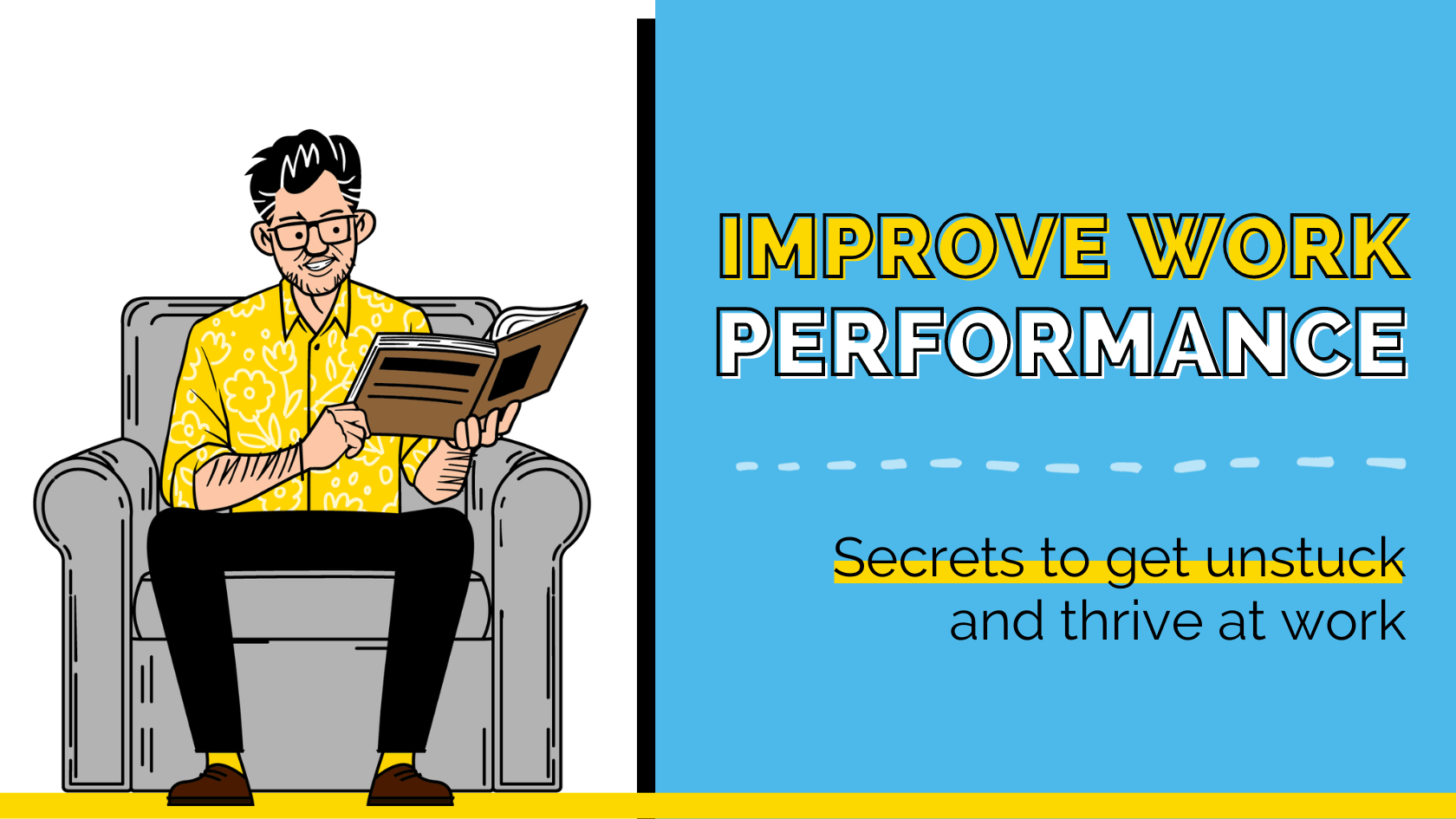How Could I Improve My Work Performance
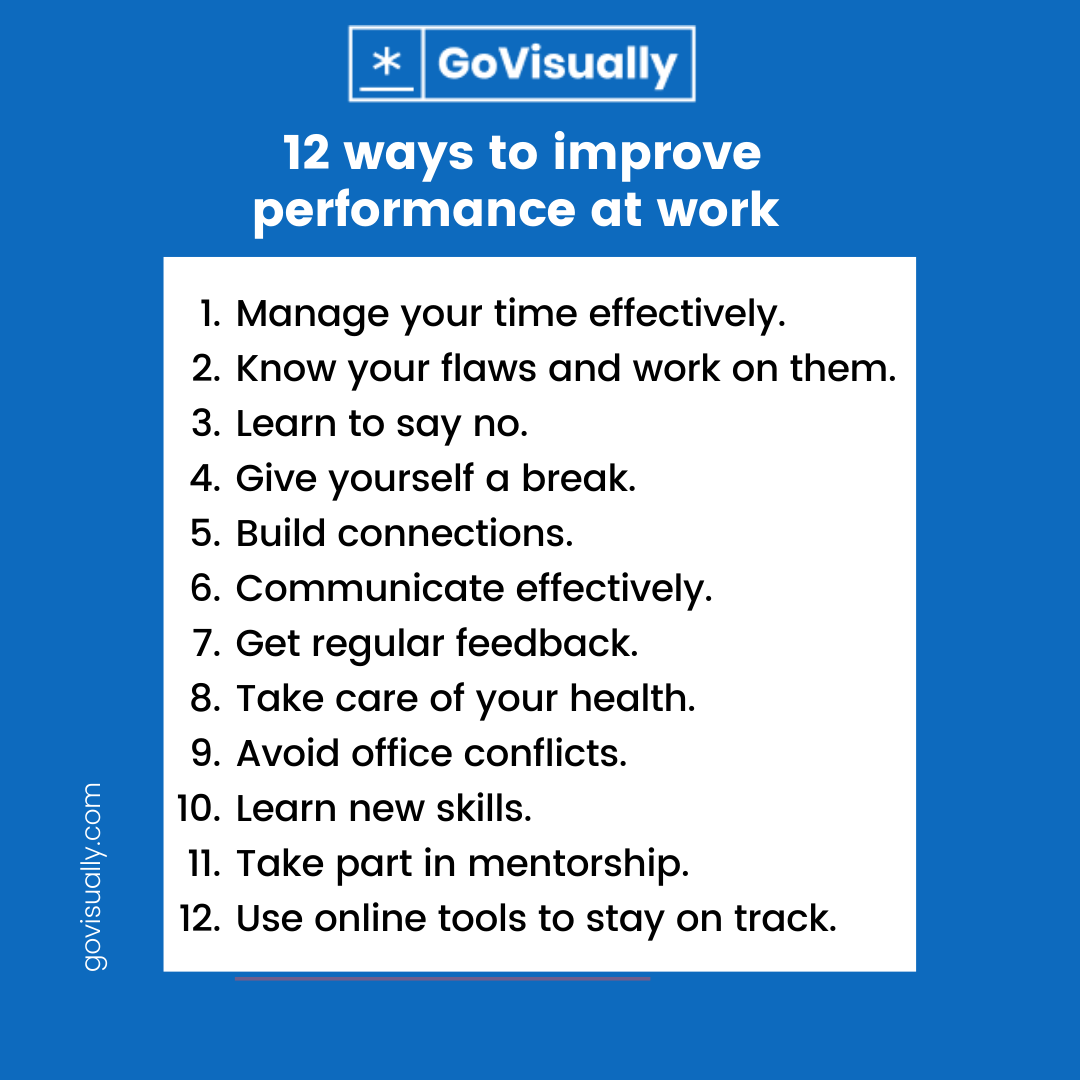
Feeling stagnant at work? Many professionals find themselves seeking ways to boost their performance, improve their efficiency, and ultimately, advance their careers. Numerous strategies exist, from mastering time management techniques to seeking out mentorship opportunities, all aimed at unlocking one's full potential in the workplace.
This article explores several evidence-based methods for enhancing work performance. These strategies range from optimizing daily routines to embracing continuous learning, providing readers with actionable advice to implement in their professional lives.
Understanding Your Current Performance
Before implementing changes, it's crucial to understand your current performance level. Self-assessment is a powerful first step. Honest reflection on strengths and weaknesses is crucial for identifying areas for improvement.
Seeking feedback from supervisors and colleagues offers valuable external perspectives. Consider requesting regular performance reviews or informal check-ins to gain insights into how your work is perceived by others.
Analyzing past projects and tasks can also reveal patterns and trends. Identifying what worked well and what didn't can inform future strategies and decision-making.
Optimizing Your Daily Routine
Time management is a cornerstone of effective work performance. Implementing strategies like the Pomodoro Technique can help maintain focus and productivity throughout the day. This involves working in focused bursts with short breaks in between.
Prioritizing tasks effectively is also essential. The Eisenhower Matrix, which categorizes tasks based on urgency and importance, can help determine where to focus your energy.
Minimize distractions by creating a dedicated workspace and turning off notifications. A focused environment can significantly improve concentration and output.
Embracing Continuous Learning
The professional landscape is constantly evolving, making continuous learning essential. Identifying skill gaps and seeking opportunities to address them can significantly enhance your value to your employer.
Consider taking online courses, attending workshops, or pursuing certifications related to your field. Many platforms offer affordable and accessible learning opportunities.
Mentorship can provide invaluable guidance and support. Seek out experienced professionals who can offer advice and share their insights. A mentor can provide valuable feedback and help navigate career challenges.
Improving Communication and Collaboration
Effective communication is vital for successful teamwork and project completion. Active listening, clear articulation, and respectful dialogue are essential for fostering positive working relationships.
Collaboration tools, such as project management software and communication platforms, can streamline workflows and enhance team coordination. Utilizing these tools effectively can improve efficiency and reduce miscommunication.
Conflict resolution skills are also crucial for navigating workplace dynamics. Learning to address disagreements constructively and find mutually agreeable solutions can promote a more harmonious work environment. Practice empathy and try to understand the other person's perspective.
Managing Stress and Promoting Well-being
Stress can significantly impact work performance, leading to burnout and decreased productivity. Implementing stress-management techniques is crucial for maintaining a healthy work-life balance.
Regular exercise, mindfulness practices, and sufficient sleep can help reduce stress levels and improve overall well-being. Taking breaks throughout the day to stretch, meditate, or simply disconnect can also be beneficial.
Prioritizing mental health is essential for long-term success. Seek support from mental health professionals or employee assistance programs if needed.
Seeking Feedback and Adapting Strategies
Regularly seeking feedback from supervisors and colleagues is crucial for monitoring progress and identifying areas for further improvement. This creates a continuous cycle of improvement.
Be open to constructive criticism and willing to adapt your strategies based on the feedback you receive. Flexibility and adaptability are key to long-term success in the workplace.
Document your progress and track your achievements to stay motivated and celebrate your successes. Recognizing your accomplishments can boost morale and encourage continued effort.

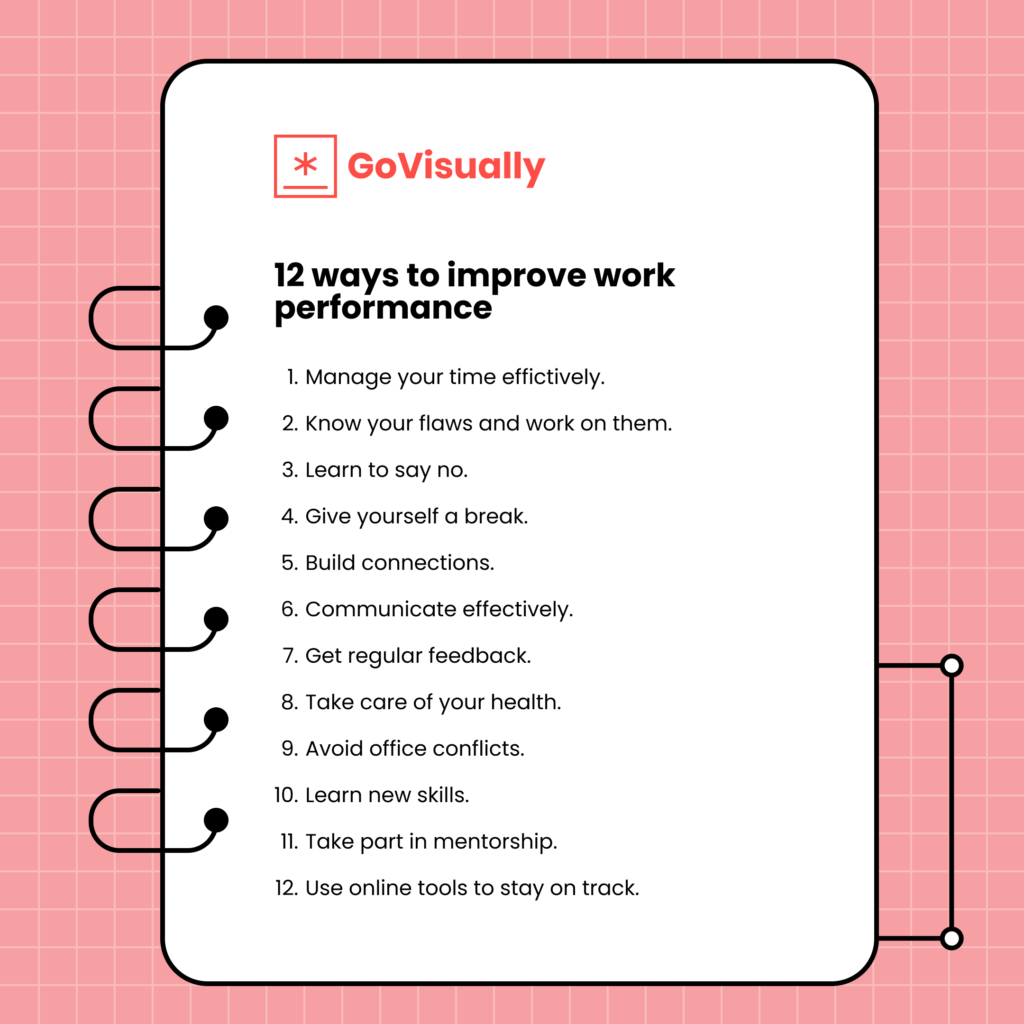

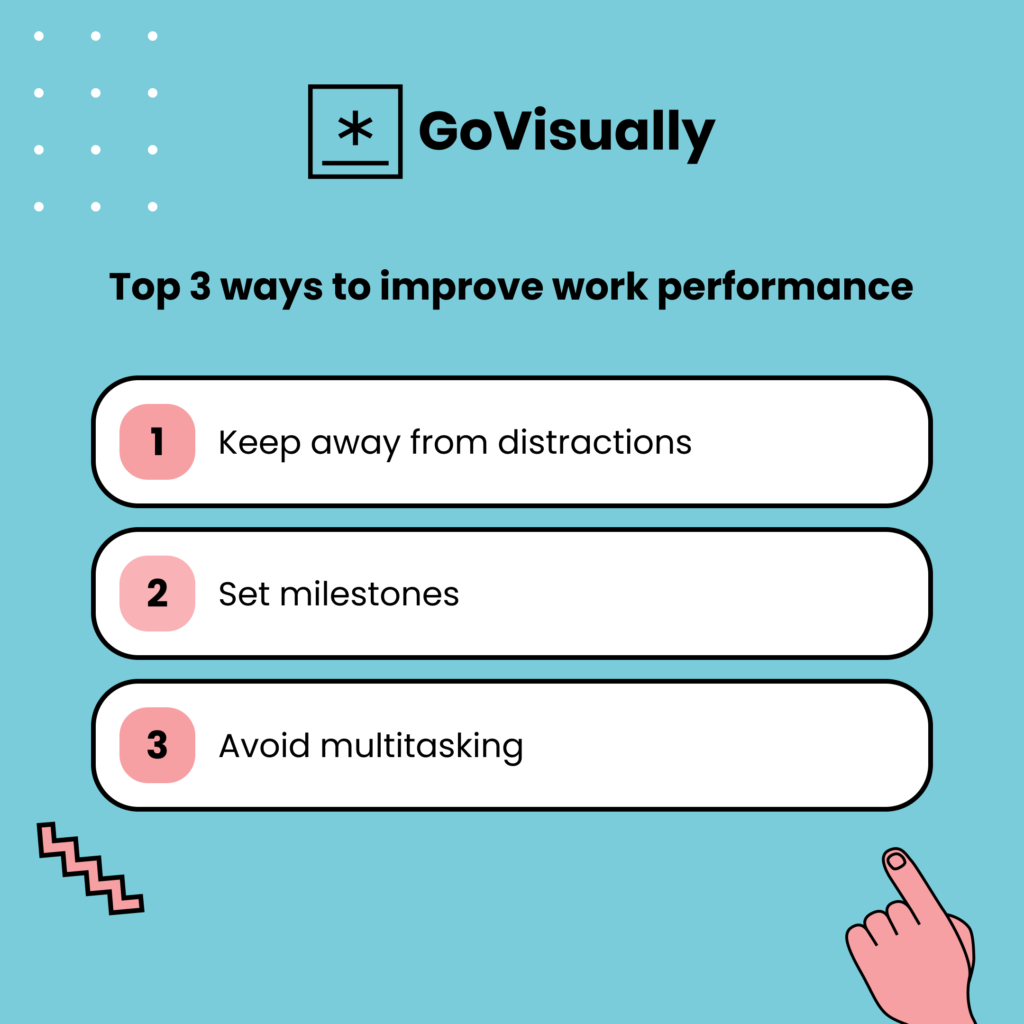


![How Could I Improve My Work Performance 7 Strategies to Improve Employee Performance [That Actually Work]](https://blog.gyde.ai/content/images/size/w2000/2023/07/7-Strategies-to-Improve-Employee-Performance1.jpg)


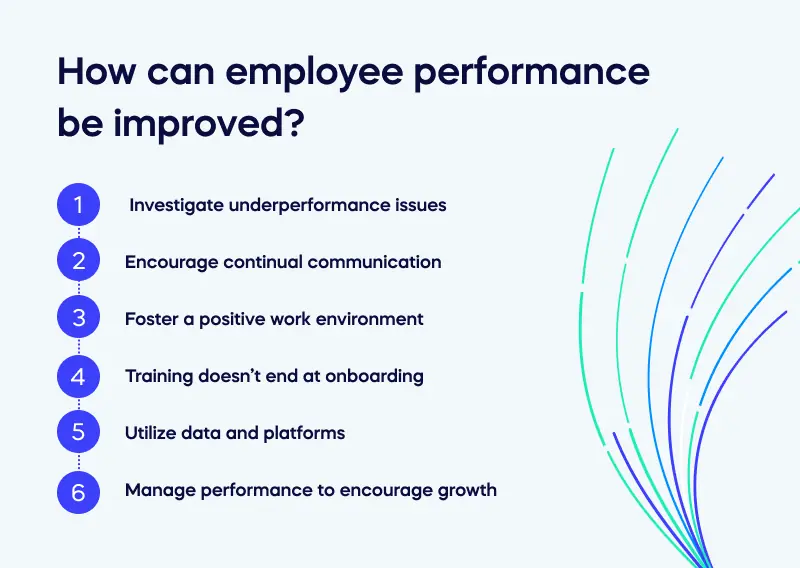
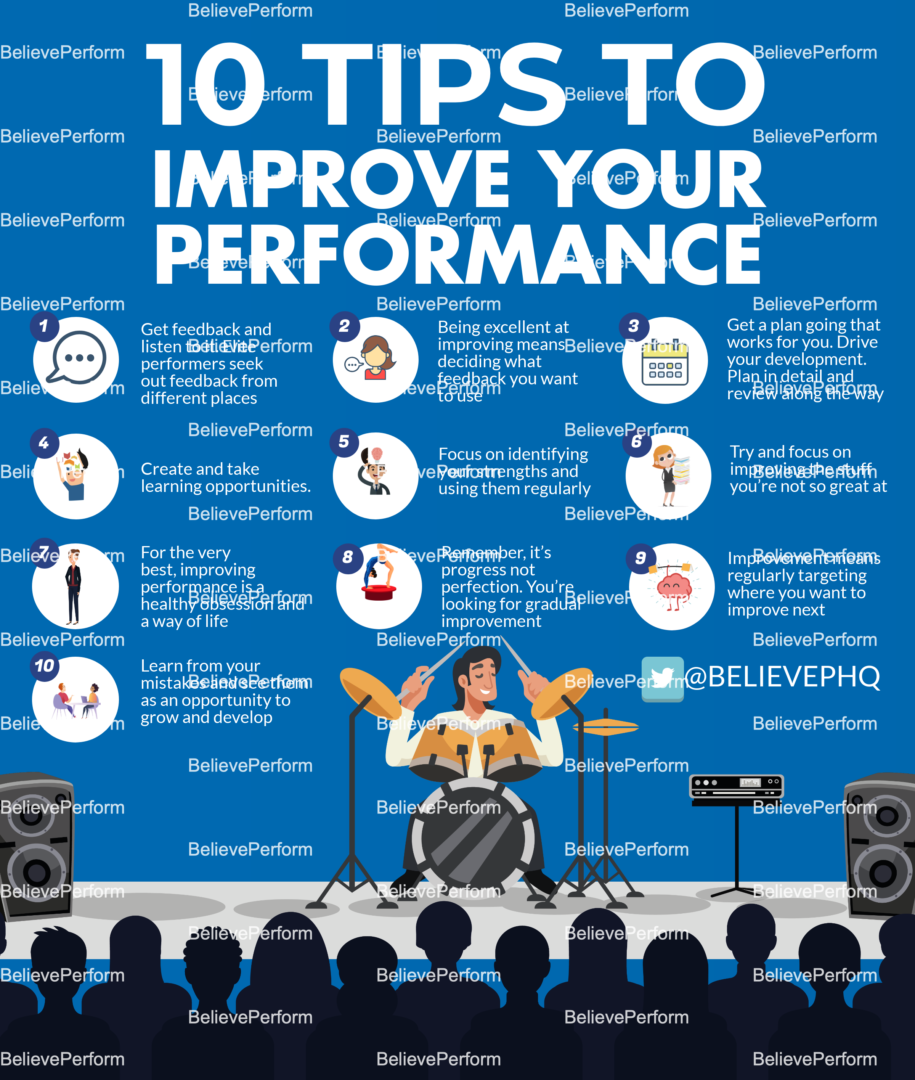

-1.png)



